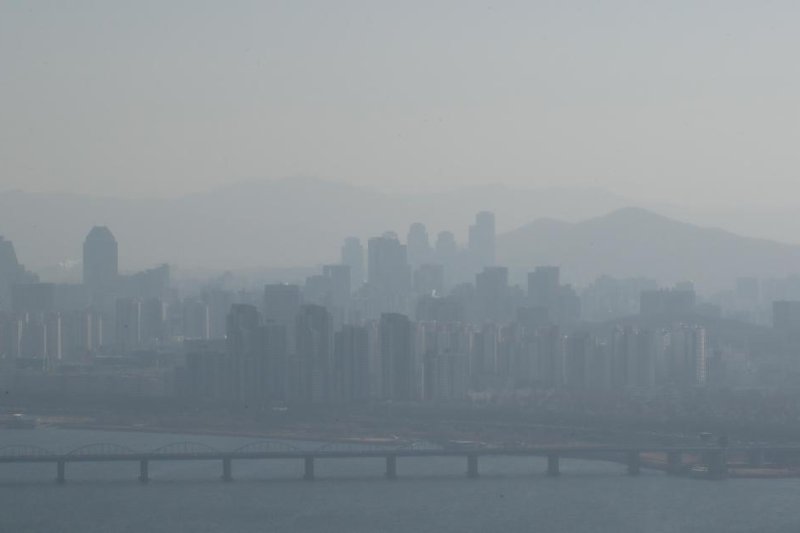Fine dust blankets Seoul on Jan. 20, 2019, as the weather agency forecasts that the dust will ease due to cold wind in the afternoon as temperatures drop. Photo by Yonhap
SEOUL, Jan. 22 (UPI) -- Fine particle pollution should be considered as deadly as a heat wave or extreme cold that pose environmental and health hazards, South Korean President Moon Jae-in said.
"Tackling fine particle pollution is one of the policy priorities of our government," he said at a cabinet meeting Tuesday, according to the presidential office.
"We need to address the problems with microfine dust particles as serious as other environmental disasters such as heat or cold wave," he noted.
Moon urged officials to come up with extra measures to reduce the level of locally-generated microdust particles.
The South Korean government has introduced plans to replace fossil-fueled vehicles with electric vehicles and phase out coal-fired power plants as part of its measures to lower microdust particles in the air.
Moon also said the government will pursue research and development in artificial rain, air purifier and dust collecting technologies in a long term.
Last week, South Korea issued dust particle warnings as the concentration level of microdust particles PM 2.5 in the air hit a record high.
"There has also been great concern regarding microfine dust particles from China," he said. "China suffers from microfine dust particles as well. Therefore, we need to work cooperatively to reduce dust particles."
Air pollution has been a pressing environmental concern in South Korea recently due to increasingly higher levels of fine dust particles PM 10 and microfine dust particles PM 2.5 in the air.
The particle pollution has been typically higher during the colder season due to slow air circulation within the Korean Peninsula, along with fine dust particles carried by the wind from industrial cities in China, according to the National Institute of Environmental Research.
The South Korean government issues the particle pollution alert if the density of microdust particles PM 2.5 in the air continues to exceed the minimum limit of 50 ㎍/㎥ for two days. A central part of Seoul saw the microfine dust particle 2.5 level hit 153 ㎍/㎥ last week.
When dust particle pollution advisories or warnings are issued, the government prohibits old diesel trucks that weigh more than 2.5 tons and run for more than 13 years in the city area. It asks citizens to refrain from driving and instead use public transportation.















